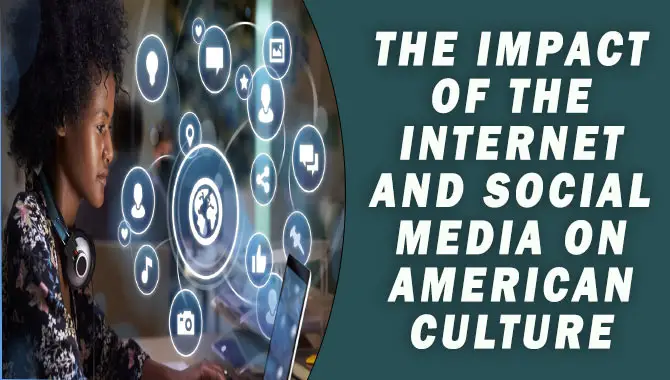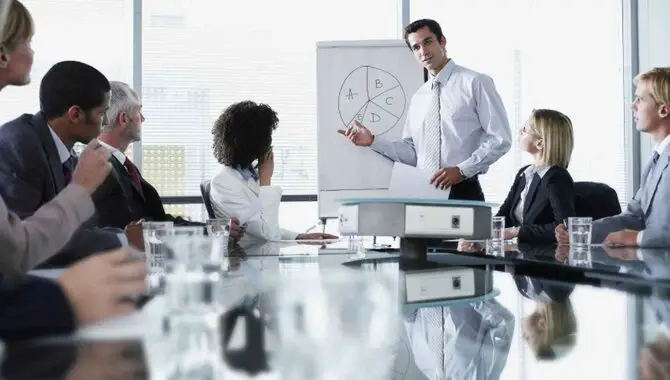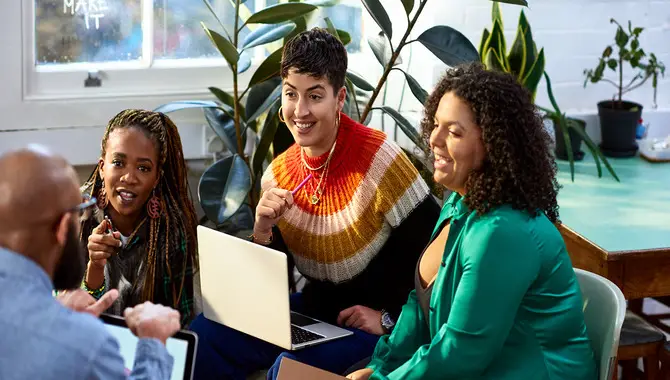The internet and social media have revolutionized how people communicate and consume information. With billions of users worldwide, social media platforms such as Facebook, Twitter, Instagram, and blogs are a communication platform for millions worldwide. With the rise of social media in recent years, there have been positive effects on education, mental health, politics, and the workplace.
There are also negative effects of social media on these areas of life. Social media is the most popular platform today. It allows people to connect and interact with each other. It significantly impacts our daily lives, politics, communication, and even the economy. However, social media has its downfalls as well.
Here, we’ll discuss some of the cons of social media, like how it influences your mental health, impacts education, and is bad for your job prospects. But before getting into the pros and cons of social media, let’s understand the impact of social media on American culture.

How Social Media Affects The U.S.
As social media has evolved, it has significantly impacted how U.S. citizens relate socially, economically, and politically. In the past few years, social media platforms like Twitter and Facebook have become increasingly popular as a means of disseminating information.
Businesses have also realized the value of social media for their marketing efforts. This has led to many ventures launching social media pages for customer interaction. A key takeaway is that social media platforms are making it easier for individuals to stay connected with friends and family worldwide. This has helped individuals stay abreast of current events and updates in their fields of interest.
Besides, evolving media technologies have changed how U.S. citizens relate socially, economically, and politically. With access to the internet at home and through mobile devices, more people are engaging with the internet regularly than ever before. This has led to changes in how they communicate and interact with each other. Social media is playing a substantial role in shaping the culture of the United States today.
Estimation Of The Impact Of The Internet And Social Media On American Culture
In the past decade, access to the internet has become increasingly common in the U.S., with 91% of children having regular access by 2005. This is largely due to personal computers and internet-enabled devices becoming cheaper and more accessible. However, social media use has been closely linked with a phenomenon known as ‘social displacement,’ where face-to-face time decreases.
Scientific studies have found that the use of social media is associated with decreased social interactions and emotional engagement. A study of U.S. adult social media users identified sociodemographic and health-related factors associated with their use. Notably, younger individuals are more likely to use social media. The younger age group also showed an increase in depressive symptoms, anxiety, and suicidal ideation compared to older social media users.
Education

Social media has revolutionized the way people share and engage with content online. It offers a platform for users to share and engage in different forms of content, such as blogs, photos, videos, and interactive platforms. Social media has changed the way people learn and share information online. Its use can facilitate constructive learning and help improve skills by fostering knowledge and creativity.
Social media is a fundamental agent of socialization. People use social media to share information, ideas, and opinions with friends and family. Social media allows people to share news stories and opinions, shape collective memories, and encourage global collaboration. Through social media, learners can access resources for educators to facilitate their learning needs.
Mental Health
Social media has revolutionized the way in social interaction and communication. It allows people to stay connected and instantly share information while being globally networked. For people who are battling mental health issues such as depression or loneliness, social media can serve as an effective support system.
Too much social media use can lead to increased narcissism and “Facebook Depression,” a condition where users become depressed or anxious from spending too much time on social media platforms. However, social media can also positively impact mental health by allowing people to interact with companies and offer feedback to improve areas of focus. In addition, social media provides a platform for individuals to share their stories and inspire others to fight the stigma surrounding mental health issues.
Politics
Social media has a wide range of uses in political processes and activities. They can use it to share and exchange ideas and opinions about political issues. Moreover, we can use social media to support or engage with political candidates or groups. For example, social media can help voters stay informed about political issues and candidates.
Malcolm Gladwell argues that the role of social media in revolutions and protests is overstated. Instead, he emphasizes the need for high-risk activism, which requires individuals to take risks and act outside their comfort zones to make real change. In this way, social media can help organize and mobilize people for social justice movements but cannot single-handedly bring about social change.
The Workplace

Social media has revolutionized the workplace by allowing employees to engage with customers and share feedback on products and services. User-generated reviews on social media platforms can help businesses improve their offerings and gain valuable insights. However, negative interactions between users can lead to dangerous real-world situations.
For instance, online bullying and harassment can occur in the workplace, negatively impacting both the victim and the bully. While social media may allow individuals to express themselves freely, it may be harder for that expression to impact them. Cyberbullying and online harassment can occur in social media, leading to a culture of negativity that is harmful to all parties involved. Businesses need to create social media policies and train their employees about the acceptable use of social media.
Interpersonal Relationships

Social media has changed the way social interactions take place today. It allows users to stay connected with family and friends anywhere in the world, but it can also lead to feelings of loneliness. People spend more time on social media than with their close friends and family.
As a result, they lose valuable social interaction and can become less happy and active in their community. Additionally, social media can positively impact our culture by allowing us to share our thoughts and feelings with others. This can be beneficial for mental well-being. On the other hand, social media has also changed many people’s priorities today, resulting in them putting less time into relationships with their close friends and family.
Online Shopping

Social media has revolutionized the way customers interact with businesses online. Social media allows customers to engage with businesses and access goods and services easily. As a result of this interaction, customers can give feedback and suggestions that help businesses improve their offerings. Social media has made it easier for businesses to market their products and services online, leading to increased online sales.
This increased online sales has led to increased customer customization and better customer experience. Additionally, social media has made it easier for businesses to track consumer behavior and preferences, allowing them to tailor their offerings and improve customer experience. All of this has created a win-win situation for both customers and businesses.
On Advertising
Social media has revolutionized how social media users share information and engage with one another. One of the most popular social media sites is Facebook, which allows users to upload and share photos, videos, and other types of content. Social media pages are often called “fan pages” or “fan pages” on social media sites, as they allow users to follow a particular person or organization. They can use these pages for various purposes, including sharing messages about the business or organization that runs them.
Another popular social media platform is Twitter, where users can share short messages known as “tweets.” Social media users often use these platforms to promote their products and services or engage in conversations with their followers. However, social media needs to be carefully used by businesses and organizations. There have been many criticisms of social media from both the business and consumer perspectives.
From a business perspective, many companies have expressed concerns about social media’s impact on advertising budgets and how it drives customers toward cheaper alternatives. At the same time, consumers have expressed concern about how easily they can be influenced or deceived by fake social media accounts operating under false identities online. But overall, social media continues to grow in popularity and impact people’s lives in many ways.
On Free Speech
Social media can facilitate individuals to express their views and opinions. However, its impact on real-world changes needs to be more stated. One of the major issues with social media is that it can be manipulated for commercial purposes, leading to the commercialization of social media.
Platforms like Twitter, Reddit, Facebook, and YouTube have been criticized for monetizing social media. This has led to the rise of platforms focusing more on advertising than social interaction, such as Instagram and Snapchat. These platforms often prioritize user engagement to generate revenue from advertisements.
Another issue with social media is its heavy reliance on it for communication. This can weaken communication skills and lead to social isolation. People who spend excessive online time may need help to form human connections. This can lead to a sense of loneliness and depression. Overall, social media has revolutionized communication and facilitated sharing of ideas and information. However, excessive reliance on social media can lead to negative effects such as isolation and depression.
On The Economy
Social media has revolutionized how businesses interact with their customers and has played a critical role in driving the global economy. Today, over 62% of the world’s population uses social media, a percentage that continues to rise yearly. The use of social media by businesses has led to increased customer engagement, which has increased revenue for businesses.
Companies can market their products and services more effectively through social media and reach a global audience. This allows them to generate more revenue from their business. With so many people using social media today, it is no surprise that businesses have found it to be an invaluable marketing platform.
On The News
Social media has revolutionized news reporting, making it faster and easier for individuals to express their opinions. This has created a “viral” news atmosphere, where stories can spread quickly throughout social media platforms. Social media allows individuals to share news stories in a primarily online format.
As such, social media allows for the rapid spread of news stories. Commercial development of social media can also lead to the creation of value for news outlets. Social media videos provide another way for news outlets to reach their audience and increase their online visibility.
As news organizations and other media outlets continue adopting social media. Businesses are recognizing its value as a marketing tool. News organizations are increasingly using social media to reach their audiences and generate high-quality traffic. Overall, social media is helping to shape the global media landscape by allowing people to express their opinions quickly and easily.
On Democracy
The impact of the Internet on democracy has been profound. It has enabled easier access to news, with 24-hour news access fueled by high-profile cases in the 1990s. Social media has made it easier for individuals to express their opinion, but more is needed for that expression to impact political processes and activities. Political polarization has resulted from social media’s filter bubble algorithms showing users content likely to match their political preferences.
As a result, social media users are more likely to receive information that consistently reinforces their beliefs rather than challenging them to be better-informed citizens. Social media has a multitude of uses in political processes and activities; however, it can also contribute to political polarization if users are only exposed to information that supports their views. To effectively engage in democracy, internet users must be willing to read different points of view and learn from those with different opinions.
The Pros And Cons Of Social Media
Social media has revolutionized the way of communication in recent years. It has allowed people to stay connected with their loved ones across the globe, thereby enhancing their personal development. Apart from this, social media platforms have also played a role in businesses by enabling them to serve customers with better and simpler methods of interaction.
This has reduced the cost of customer engagement and enhanced customer relationships. However, there are also some drawbacks of social media, such as cyberbullying and false information being spread on these platforms. Thus, it is essential to understand both the positive and negative aspects of social media so that appropriate steps can be taken.
- It has an impact on social media users’ personal development.
- It is used by adolescents to stay connected with friends and family across the world.
- It has changed the way businesses engage with their customers.
- With social media, businesses can offer new and simpler ways of interacting with customers. This has enabled businesses to reach out to more people and provide them with a better experience.
- In terms of cyberbullying, social media platforms have made it easier for users to share experiences online without being bullied in real life.
Conclusion
Social media has had a profound impact on American culture. From socializing online to sharing memes, social media has changed the way people share information and interact with each other. It gives people access to a wealth of information and tools for self-expression, which has impacted nearly every aspect of American culture.
But the impact of the Internet and social media on American culture also created challenges, which are in terms of cyberbullying, misinformation, and over-sharing personal information. Social media platforms have had a positive impact on our society by connecting people.
Which makes the world a smaller place, and provides a platform for free speech. However, social media has also had its fair share of drawbacks, such as spreading fake news and influencing users’ mental health. But ultimately, it’s up to us to decide how we use social media. It’s an individual choice that has the potential to positively or negatively impact the way society functions.
Frequently Asked Questions
1.What Is The Impact Of The Internet On Culture?
Ans: The internet has had a significant impact on culture by enabling innovation and progress in all areas of human endeavor. Social media platforms such as Facebook and Twitter have completely revolutionized how people communicate and interact with each other. They have also been beneficial for businesses as they have realized their value for marketing purposes.
2.How Did Mass Media Change American Culture?
Ans: There are a few ways that mass media has changed American culture. The most significant impact of mass media on American culture has been its impact on the way people communicate and socialize with each other. For example, in the 1990s, due to high-profile cases such as the O.J. Simpson trial, the average American became more aware of criminal justice issues and the workings of the legal system. This increased interest in news media and led to a proliferation of 24-hour news access.
3.How Do The Internet And Social Media Change Our Lives?
Ans: The internet and social media have revolutionized the way we interact with each other. For example, social media platforms such as Facebook and Twitter make it easy for people to stay connected with their friends and family across the world. They also enable businesses to offer new and simpler ways of interacting with their customers. This has enabled businesses to reach out to more people and provide them with a better experience.
4.What Are Some Trends In American Culture That Have Been Influenced By The Internet And Social Media?
Ans: One of the major trends that social media has influenced is the concept of “personal branding.” Personal branding is the use of a person’s online persona to represent themselves in a positive light. This has led to people interacting with each other more through social media platforms, which has weakened the traditionally authoritative voices of news media.
5.Is Tt Acceptable For Employers To Create Rules About Employees’ Internet Usage?
Ans: The answer to this question is subjective, as the rules employers place about their employees’ internet usage will vary from company to company. Some companies may be more lenient about their employees’ online habits than others and may not take action if they catch employees using the internet for personal reasons outside work. Ultimately, it is up to each employer to set guidelines about what is and isn’t acceptable online behavior.

I’m a writer and blogger who loves to talk about entertainment, culture, and relationships. I love to share my thoughts and insights on these topics, and I’m always looking for new ways to engage with my readers. I’m also a big fan of learning new things, so I’m always exploring new areas of interest.
